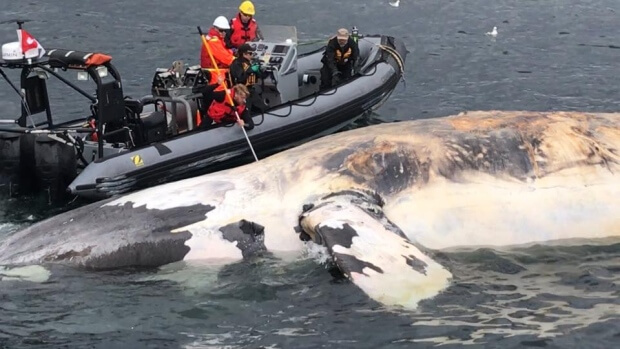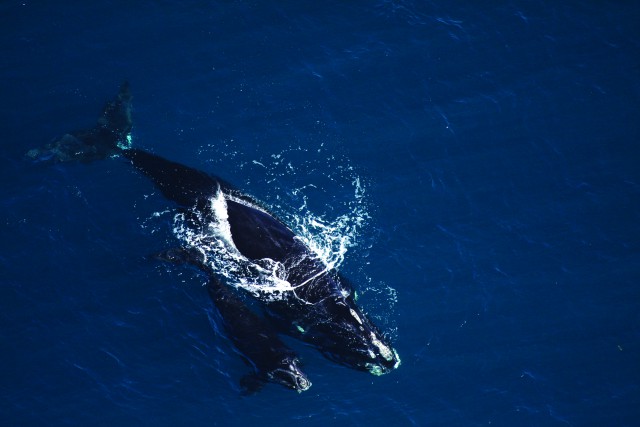
In what marine biologists are calling an “unprecedented” and “catastrophic” event, at least six North Atlantic right whales have died this month in the Gulf of St. Lawrence for reasons yet unknown.
The Department of Fisheries and Oceans Canada (DFO) announced late last week it is working with marine mammal experts, scientists and fishery officers from across Atlantic Canada to determine the cause of the rare whales’ deaths.
The first whale, reported on June 6, was found drifting off the coast of the Magdalen Islands, east of New Brunswick. A little over a week later, a second and third were located in the gulf. The other three were found between June 20-23.
Right whales are one of the most endangered of all whale species. The International Union for the Conservation of Nature estimates there are only about 350 individuals in the Northwest Atlantic, which, historically, was home to tens of thousands. The species never fully recovered from intense whaling in the 20th century.
The Department of Fisheries and Oceans Canada estimates there are only 525 alive today in the world. The right whale is recognized under the federal government’s Species at Risk Act, and in the U.S. under the Marine Mammal Protection Act.
What’s happening to the right whale?
Experts are at a loss to explain what killed the large whales. The CBC reported on Monday, June 26 that DFO is working with a range of groups to recover at least one of the whales from the ocean in time to conduct a necropsy. The Globe and Mail reports that there is speculation the deaths were caused by collisions with ships, the most common cause of right whale fatalities, or being entangled in fishing gear. Another cause could be a toxic algae bloom. Scientists are looking at other species that frequent the area, such as birds and fish, for indications that a bloom has occurred.
The Conservation Council, through its Marine Protection and Fundy Baykeeper programs, advocates for healthy ecosystems to support the diversity of wildlife and the many coastal communities that depend upon the Bay of Fundy, a traditional summer feeding ground for the North Atlantic right whale.
In the past, the Fundy Baykeeper has raised concerns about the impact climate change is having on whales and other marine mammals in the Bay of Fundy, which is one of the fastest warming bodies of water associated with climate change in the world.
Recently, the Baykeeper repeated calls for the impact of marine tanker traffic in the Bay of Fundy to be included in the federal review of the proposed Energy East pipeline. In recent decades, a significant percentage of right whale deaths have been caused by collisions with ships or getting entangled in fishing nets.
Want to get involved? Help support our work on Marine Conservation.


